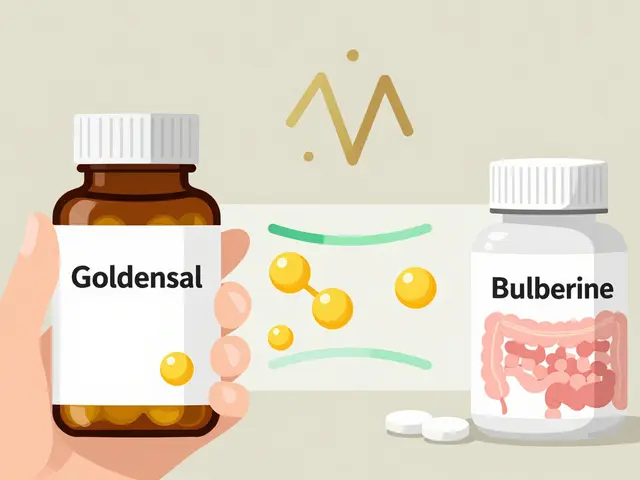The noni fruit, a staple in Polynesian culture for thousands of years, is lauded for its remarkable health benefits. With its origins deeply rooted in the rich soil of the South Pacific islands, noni has been used traditionally to treat a variety of ailments and promote overall wellness.
Noni is packed with an array of nutrients, including vitamins, minerals, and powerful antioxidants. These elements work together to offer a natural boost to the immune system, enhance skin health, and support digestion, among other benefits.
Incorporating noni into your daily routine can be straightforward and rewarding. Whether consumed as a juice, taken in supplement form, or applied topically, noni can become a valuable part of your wellness regime. It's important, however, to be mindful of any potential interactions or side effects, especially if you have underlying health conditions.
Dive into the rich history, understand the powerful health benefits, and learn practical tips on how to make noni a beneficial addition to your lifestyle.
- The History and Origin of Noni
- Nutritional Profile of Noni
- Health Benefits of Noni
- How to Use Noni in Your Daily Routine
- Precautions and Considerations
The History and Origin of Noni
The story of noni dates back over 2,000 years, originating from the pristine islands of the South Pacific. The noni plant, scientifically known as Morinda citrifolia, flourishes in the volcanic soil of these tropical regions, particularly within Polynesia. The Polynesian people have revered this plant for centuries, not merely for its survival capabilities but primarily for its immense medicinal properties.
Noni was considered a sacred plant by ancient Polynesians, often utilized in traditional healing practices. The fruit, roots, bark, and leaves of the noni plant were all employed in various remedies. Polynesian navigators carried noni with them on extensive voyages to ensure they had access to its benefits. It's often said that these navigators brought noni to Hawaii, where it thrived and became an integral part of Hawaiian medicine.
The ancient healers, or Kahunas, harnessed the power of noni to address a myriad of health issues. Traditional uses included treatments for arthritis, skin infections, fever, and digestive problems. The significance of noni in Polynesian culture is also reflected in local folklore and songs, highlighting its integral role in their daily lives and health practices.
Noni’s journey from Polynesia to the rest of the world began relatively recently. In the late 20th century, researchers started to take notice of this 'miracle fruit'. Studies began to confirm what Polynesian healers had known for centuries: noni possessed extraordinary health benefits, backed by an impressive nutritional profile. This led to a surge in the popularity of noni, especially in natural health communities worldwide.
A fascinating aspect of noni's history revolves around its potential in boosting the immune system. Traditional healers believed noni could strengthen the body’s natural defenses, a concept that modern science has begun to explore more deeply. A quote from Dr. Ralph Heinicke, a pioneering researcher on noni, encapsulates its potential:
"Noni is one of the most important botanicals I've encountered in my research. Its unique compounds could be the key to many health benefits we are just beginning to understand."
Today, noni is available in various forms, including juices, capsules, and topical products. However, the reverence and traditional knowledge passed down through generations in Polynesia still dominate its narrative. Respecting these origins, many companies selling noni products work to support Polynesian communities and ensure sustainable harvesting practices.
The history of noni is not just about a fruit; it's about a deep connection between people and nature. It underscores how traditional knowledge and modern science can intersect to reveal the full potential of natural remedies. As you explore the benefits of noni, remember the ancient wisdom that has guided its use for millennia.
Nutritional Profile of Noni
Noni fruit, scientifically known as Morinda citrifolia, packs a powerful punch when it comes to nutritional value. This tropical fruit is rich in vitamins such as vitamin C, A, and a range of B vitamins including B1 (thiamine), B2 (riboflavin), B3 (niacin), and B6. Each of these vitamins plays a crucial role in maintaining overall health, from boosting the immune system to improving skin and eye health.
The fruit contains a variety of essential minerals. Potassium is notably abundant in noni, a mineral that supports heart health by regulating blood pressure levels. Additionally, noni provides calcium, which is vital for healthy bones and teeth, and magnesium, which aids in muscle function and energy production. Other minerals present in smaller amounts include iron, which is essential for red blood cell production, and selenium, which has antioxidant properties.
Noni is also a good source of dietary fiber. This helps promote a healthy digestive system by adding bulk to the stool and aiding in regular bowel movements. Fiber can also help manage blood sugar levels and lower cholesterol. In addition to dietary fiber, the fruit is loaded with powerful antioxidants such as flavonoids, quinines, and lignans. These compounds help protect the body from oxidative stress and reduce the risk of chronic diseases. According to research published in the Journal of Food Science and Technology, "Noni juice significantly enhances the body's naturally occurring antioxidant systems."
A noteworthy component of noni's nutritional profile is its phytochemicals. These include unique compounds like scopoletin, which has anti-inflammatory and mood-enhancing properties, and damnacanthal, a compound studied for its potential anti-cancer effects. The synergy of these phytochemicals with the fruit’s vitamins and minerals contributes greatly to its health-promoting attributes.
The fruit's amino acid profile is another area of interest. Noni provides several essential amino acids, including isoleucine, leucine, lysine, and methionine, which the body cannot produce on its own. Amino acids are the building blocks of proteins, crucial for tissue repair, muscle development, and various metabolic functions.
For those looking to incorporate noni into their diet, it is often consumed in juice form. However, it's essential to be aware of its potent taste and potential interactions with medications. Fresh noni fruit or noni powder can be alternatives for those who prefer to use it in different culinary applications. No matter the form, the fruit’s rich nutrient content can be a valuable addition to a health-conscious diet.
Health Benefits of Noni
The noni fruit, also known as Morinda citrifolia, has been celebrated in Polynesian culture for its extensive health benefits. This humble fruit is packed with nutrients, antioxidants, and compounds that contribute to various aspects of health and wellness. Noni contains a large concentration of vitamins such as Vitamin C, Vitamin A, and an array of B vitamins. It also boasts a rich mineral profile including iron, calcium, potassium, and magnesium, which play a role in maintaining bodily functions.
One of the most compelling benefits of noni is its ability to boost the immune system. The high Vitamin C content is a potent antioxidant that helps protect the body from harmful free radicals and strengthens the immune defenses. Studies have shown that noni can also increase the production of cytokines, molecules essential for immune response.
Additionally, noni is known for its anti-inflammatory properties. The compounds found in noni, such as scopoletin and quercetin, help reduce inflammation, making it beneficial for conditions like arthritis and other inflammatory disorders. These components work by inhibiting the enzymes responsible for inflammatory processes, providing natural pain relief and improved joint function.
Noni's impact on digestive health should not be underestimated. The fruit contains fiber and prebiotics that aid in digestion and nourish the gut microbiome. By promoting a healthy gut environment, noni supports better digestion, helps prevent constipation, and may even relieve symptoms of irritable bowel syndrome (IBS).
For those interested in improving skin health, noni offers significant advantages. Due to its antioxidant properties, noni can help in reducing the signs of aging by neutralizing free radicals. Its anti-inflammatory and analgesic properties also make noni useful in treating various skin conditions such as acne, eczema, and psoriasis. Noni oil, when applied topically, can moisturize the skin and accelerate the healing of wounds and burns.
According to Dr. Neil Solomon, a well-respected health researcher, "Noni juice has been shown to have potential benefits for a wide range of health conditions including high blood pressure, and digestive disorders."
Moreover, noni has shown promise in supporting cardiovascular health. Research indicates that noni can help lower high blood pressure and improve cholesterol levels. The compounds in noni help dilate blood vessels, enhancing blood flow and decreasing the risk of heart disease. A small-scale study even suggested that noni juice might aid in reducing levels of LDL cholesterol, the so-called 'bad' cholesterol, while raising HDL cholesterol, the 'good' cholesterol.
It's also worth mentioning that noni may play a role in cancer prevention and treatment. Some preliminary studies suggest that the antioxidants in noni can assist in inhibiting the growth of cancer cells. Noni's compounds may induce apoptosis or programmed cell death, slowing the progression of certain types of cancer. While more research is needed in this area, these findings are promising and add to the list of potential health benefits noni offers.
Incorporating noni into your daily routine can be easy and rewarding. From drinking noni juice to taking supplements or using noni-infused skincare products, there are various ways to harness the health benefits of this incredible fruit. However, it's important to consult with a healthcare provider before starting any new health regimen, particularly if you have existing health conditions or are taking other medications.
How to Use Noni in Your Daily Routine
Incorporating noni into your daily routine can be easier than you might think. There are various forms in which noni is available, including juice, powder, capsules, and even as a topical application. The versatility of this fruit makes it accessible and convenient to use no matter what your preference is.
One of the most popular ways to consume noni is in its juice form. You can find noni juice in health food stores and online. Drinking a small amount each morning can help to kickstart your day. Many people find mixing noni juice with another fruit juice, like apple or grape, makes it more palatable given its strong, somewhat bitter flavor. Consistency is key in order to see long-term benefits, so try to make it part of your morning routine.
If you’re someone who prefers smoothies, adding noni powder to your favorite smoothie recipe can also be a good option. This way, you’re getting the nutritional benefits of noni without altering the flavor too much. A teaspoon of noni powder can go a long way, and when combined with fruits like banana, mango, and spinach, your smoothie will be both delicious and nutritious.
Noni capsules are another alternative, particularly for those who might have a sensitive stomach or simply prefer taking supplements in pill form. These capsules often contain concentrated noni extract, and they are convenient for those who are always on the go. Just make sure to follow the recommended dosage on the packaging or consult with a healthcare provider to ensure it’s suitable for your needs.
For skin health, noni can be used topically. There are noni-based creams and lotions available that can be applied directly to the skin. These products are often used to treat conditions like acne, eczema, or simple dry skin. Just apply the cream to the affected area and gently massage it in. Noni's natural healing properties can help soothe the skin and reduce inflammation over time.
Noni has also found its place in culinary usage. In some Polynesian cultures, the fruit is used in cooking. Though it has a strong taste, when cooked, it can be used to flavor stews or make a unique chutney. Experimenting in the kitchen can lead you to discover new favorite dishes while reaping the health benefits.
Some quick tips to seamlessly integrate noni into your daily life include keeping your noni products in an easily accessible place, setting daily reminders in your phone, and experimenting with different forms to see which you prefer. Whether you’re drinking the juice, adding the powder to your smoothies, or taking the capsules, find what works best for you.
"Noni has been an essential part of traditional medicine in Polynesian cultures. It’s fascinating to see modern science confirm what ancient wisdom has known for centuries," says Dr. Margo Hayes, a specialist in natural medicine.
Mind the dosage and any potential side effects. While noni is generally safe for most people, it's important to listen to your body and consult with a healthcare professional, especially if you are pregnant, nursing, or taking medications.
Precautions and Considerations
Before diving head-first into adding noni to your daily regimen, there are some precautions and considerations worth noting to ensure it benefits your health without causing unexpected issues. Noni, like any supplement, may not be suitable for everyone, and understanding its effects on your body is essential.
Recent studies suggest that the consumption of noni juice should be approached with a degree of caution, particularly for individuals with certain health conditions. For instance, noni juice contains a significant amount of potassium. While potassium is vital for many bodily functions, excessive intake could be harmful, especially in people who suffer from kidney problems. High potassium levels can cause dangerous complications, including heart issues.
It's also crucial to be wary if you're pregnant or breastfeeding. Limited research has been conducted on the safety of noni for these groups, so it's prudent to err on the side of caution. Consulting with a healthcare provider before introducing noni into your health routine is a wise move.
According to a study published in the Journal of Toxicology, “Although noni fruit juice is generally considered safe for consumption, there have been reported instances of liver toxicity. This underscores the importance of moderation and medical guidance when incorporating noni products into one’s diet.”Additionally, some people might experience allergic reactions to noni. Symptoms can vary from mild skin rashes to more severe respiratory issues. If you're new to noni, it might be best to start with a small amount to see how your body reacts.
Furthermore, if you're on any medications, especially those for blood pressure or anticoagulants, it's vital to discuss with your doctor before starting noni. There can be interactions, which might either enhance or reduce the effects of your medications. Noni’s influence on blood pressure and blood clotting mechanisms necessitates a professional’s opinion to avoid complications.
Quality control is another significant factor to consider. Not all noni products are created equal. The purity and potency of noni can vary significantly between brands. Opt for products from reputable companies that follow stringent quality control standards. Look for certifications or endorsements from health organizations to ensure you’re getting a product that’s both safe and effective.
To summarize:
- Consult with a healthcare provider before starting noni, especially if you're pregnant, breastfeeding, or have kidney problems.
- Be cautious of potential allergic reactions and start with a small dose.
- Discuss with your doctor if you’re on medication, particularly for blood pressure or anticoagulants, due to interaction risks.
- Choose high-quality, reputable noni products for the best and safest results.
Approaching noni with these precautions in mind will help you harness its benefits while minimizing any potential risks. When used correctly, noni can indeed be a valuable addition to your health and wellness routine.



 Medications
Medications





Cassaundra Pettigrew
May 17, 2024 AT 04:18This noni nonsense is just another colonial scam wrapped in hippie packaging. Polynesians didn't need lab reports to know what worked - they used what grew. Now some Silicon Valley startup is bottling it for $50 a bottle and calling it 'ancient wisdom.' Wake up, people. If it were really that magical, why are Polynesian health outcomes still trash? This is cultural appropriation with a side of profit.
Brian O
May 18, 2024 AT 14:58I get where you're coming from, but I think we can respect the tradition without falling for the hype. My grandma used noni leaves for burns - no juice, no capsules, just crushed leaves and a cloth. It worked. Maybe the real value isn't in the bottle, but in the knowledge passed down. Let's not throw the baby out with the bathwater - or the overpriced smoothie.
Steve Harvey
May 18, 2024 AT 23:04Wait - you think this is just about healing? Nah. Noni is a distraction. The real agenda? They're using it to mask the fact that the FDA and Big Pharma are suppressing real cures. Look at the patents - every single one is owned by corporations with ties to the military-industrial complex. The Polynesians knew noni could cure cancer, but they were forced to sell the rights to Monsanto. That's why it's only sold as 'supplements' - so they don't have to prove it works. And the potassium? That's not a side effect - it's a slow-acting poison to keep you dependent on their meds. I've seen the documents. They're hiding it in plain sight.
Gary Katzen
May 19, 2024 AT 07:04I tried noni juice for three weeks. Tasted like fermented garbage. Didn't feel any different. But I didn't stop taking it because I respect the culture behind it. Sometimes, it's not about the result - it's about honoring the intention. I'll keep sipping it quietly, no expectations, just gratitude.
ryan smart
May 20, 2024 AT 00:11Noni? That's just some Pacific Islander fruit. We got real medicine here in America. Why waste time on this? Stick to vitamins you can buy at Walmart.
Sanjoy Chanda
May 20, 2024 AT 14:57As someone from India, I've seen similar traditions with neem, turmeric, and amla. The wisdom is real - but the marketing? Not so much. I drink noni juice once a week. Not because I expect miracles, but because it reminds me that health isn't always about the newest pill. Sometimes, it's about the oldest root. Keep it simple. Listen to your body. And if it tastes like regret? Maybe skip the juice and try the tea instead.
Sufiyan Ansari
May 22, 2024 AT 10:46It is a profound irony that the very civilizations which cultivated holistic knowledge over millennia are now reduced to mere sources of commodified botanicals for Western consumerism. The noni fruit, revered as a sacred offering in ancestral Polynesian cosmologies, has been stripped of its spiritual context and repackaged as a dietary supplement - a symbol of epistemic violence disguised as wellness. One must question whether the pursuit of health, when divorced from cultural reverence, becomes merely another form of colonial extraction.
megha rathore
May 22, 2024 AT 11:28OMG I tried noni and my skin broke out BAD 😭 like, 3 days of acne apocalypse 😵💫 and my mom said I have 'toxic liver' from it 😭😭😭 is this why they say it's dangerous?? I'm so scared now 😭😭😭
prem sonkar
May 23, 2024 AT 07:52noni juice is good but i tried it and it taste like ass 😅 i mix it with orange juice now and it’s okay but still kinda weird. i heard it helps with back pain? i got a bad one from lifting so i’m gonna keep tryin
Michal Clouser
May 25, 2024 AT 00:43Thank you for sharing this thoughtful piece. I’ve been researching noni for months now - mostly because my mother suffered from chronic inflammation and found relief through traditional methods. While I’m cautious about the commercialization, I’m also deeply moved by the resilience of indigenous knowledge systems. I’ve started a small community garden with noni saplings and am working with a Polynesian herbalist to document local uses. If anyone wants to join, I’d love to connect. Let’s honor this wisdom - not just consume it.
Earle Grimes61
May 25, 2024 AT 12:26Noni is a bio-weapon disguised as a supplement. The potassium levels are engineered to induce renal stress, which creates dependency on pharmaceutical diuretics. The antioxidants? They're masking the presence of glyphosate-laced soil runoff from corporate plantations. The FDA knows. The WHO has internal memos. The Polynesian elders were coerced into signing over IP rights under false pretenses - they thought they were selling 'cultural tourism rights.' The real goal? To destabilize traditional healing networks so that only Big Pharma can 'legally' treat the diseases noni naturally prevents. I've got the leaked emails. Want proof? DM me.
Corine Wood
May 26, 2024 AT 06:50I’ve been practicing Ayurveda for over 20 years and I’ve seen the same pattern with every 'miracle' plant from the Global South. First, it’s revered. Then it’s extracted. Then it’s patented. Then it’s priced out of reach for the people who grew it. Noni deserves respect - not a $40 bottle with a label that says 'ancient secret.' Let’s support fair-trade, community-owned noni farms. Let’s learn from the culture, not just the compound.
BERNARD MOHR
May 27, 2024 AT 20:02Okay, but what if noni is actually a portal? 🤔 I mean, think about it - the fruit grows in volcanic soil, right? Volcanoes = earth’s energy. The juice is dark, almost black - like a black hole. And the taste? That’s not bitterness - that’s the vibration of the universe trying to speak to you. I’ve been drinking it every morning while meditating on the 7 chakras. Last week, I saw a glowing turtle in my vision. It said, 'The fruit remembers.' I’m not crazy. The ancients knew. The aliens knew. Noni is the bridge. 🐢✨
Jake TSIS
May 28, 2024 AT 09:37Noni is just a scam. I tried it. Didn’t work. Also, Polynesians are lazy. Why didn’t they invent the internet? Probably because they were too busy eating fruit.
Akintokun David Akinyemi
May 28, 2024 AT 11:31As a Nigerian herbalist, I’ve used noni in combination with bitter leaf and moringa for hypertension patients - and the results are consistent. The real magic isn’t in the fruit alone - it’s in the synergy of traditional formulations. Western science reduces everything to single compounds, but African and Polynesian systems understand the body as an ecosystem. Noni is a piece of the puzzle - not the whole picture. Let’s stop commodifying and start collaborating.
Jasmine Hwang
May 29, 2024 AT 23:14noni? i tried it once and i felt like i was gonna die 😭 like my tongue was on fire and my stomach was doing backflips. then i looked up the ingredients and there was like 17 weird chemicals in it. so i called the company and they said 'oh that's just natural fermentation' but i know they're lying. i'm going to start a petition. this is a health crisis.
liam coughlan
May 31, 2024 AT 16:07My uncle in Galway used to crush noni leaves and apply them to his arthritis. Said it felt like cool silk. Didn't know what it was called until I moved to Hawaii. Still use it. Doesn't cure anything - but it helps. Sometimes that's enough.
Maeve Marley
June 2, 2024 AT 14:22Let’s be real - most of us are just looking for a quick fix in a world that’s constantly screaming at us to do more, be more, buy more. Noni isn’t the answer, but the fact that we’re even here talking about it? That’s the real story. We’re starved for connection - to nature, to history, to something that doesn’t come with a barcode. I don’t drink the juice, but I plant noni trees in my backyard. I don’t expect healing. I expect remembrance. And maybe that’s the only cure we really need.
My grandmother used to say, 'The earth doesn’t owe you health. But if you listen, it might lend you a little.' Noni taught me how to listen.
I don’t post this to convince anyone. I post it because I’m tired of pretending that wellness is a product. It’s a practice. And sometimes, the most radical thing you can do is sit quietly with a fruit that smells like regret and still choose to honor it.
So I’ll keep tending my tree. And you? Maybe just pause before you click 'add to cart.'